- Homepage
- Our green garden
- Carpet South Africa With Spekboom
Carpet South Africa with spekboom
Carpet South Africa with Spekboom is about a wonderful indigenous tree that soaks up an incredible amount of carbon-dioxide from the atmosphere.
Rumour has it that our national flower is about to go the way of Die Stem, Afrikaans-universities and the old SA flag; and our cricket teams are about to be renamed the Porkies.
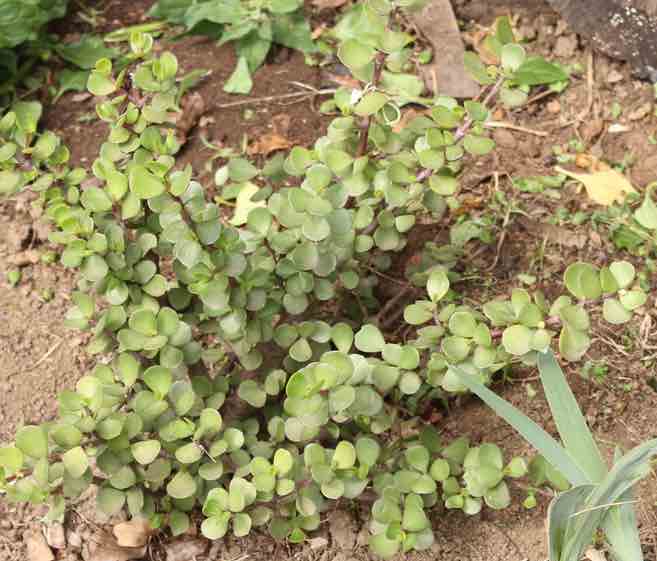
I am kidding of course. Long live the unforgettable Protea but there has been considerable interest of late in the Spekboom; Portulacaria afra.
Mostly at our green home, in my half of the garden anyway I look to plants that produce food. However those that secrete prolific amounts of nectar like the Halleria-Lucida, particularly if they are indigenous always get a look in. Martin Roberts in "A History of South Africa" describes the honey from the Spekboom, also known as the Porkbush as unsurpassed in flavour and texture.
That is not faint-praise, catching this beekeeper’s eye. Personally I have no experience of the honey from the Spekboom but our first shrub is six months old and flourishing; given time I am told it will grow into a small tree.
It is clearly a succulent and we anticipate a carpet of pink flowers, small and star-shaped according to SANBI; they are apparently a rich source of nectar for insects and beekeepers. I look forward to seeing how the resident sunbirds take to the blooms too.
It is very easy to propagate apparently so the nurseries will not be making a huge profit; simply break off a twig and stick it into some river-grit and keep it moist but not wet. She with the green thumb is going to try her hand.
Carbon sink
There is much credible scientific information confirming that the prophets of doom have in fact been spot-on about catastrophic global warming; all around us we are witnessing signs of irreversible climate change. What is particularly interesting about the Spekboom is its ability to act as a carbon sink.
Far more than most plants it apparently has the ability to capture some of the vast amounts of toxic gases from the atmosphere; those coal-fired power stations are poisoning South Africa and its people. Spekboom is one small part of the solution.
We have such vast tracts of ground under bugweed and other nasty invaders; especially where those beautiful old gums, also under the hammer have been laid low.
Would it not be wonderful if everyone reading this cut back just one bugweed and planted an indigenous tree like Halleria or Spekboom? They are very pretty with oodles of nectar for the seriously-threatened bees; make it your small contribution to save the planet from greenhouse gases and starvation.
Honeybees pollinate one in four mouthfuls of the food we eat every day.
As an aside you will notice that local honey has risen in price and in fact may soon be difficult to find. I am fairly sure that it is because of the extremely dry summer, winter and now spring weather. We have had several fat-years; it is inevitable that there will be a lean one, hopefully not seven, to follow. Even as I write the gentle spit of the fly is bringing hope that the rains have started.
We have had to resort to the utility for the last month; that has psychologically been a disaster in our green home but I hear a steady trickle of rainwater into our underground reservoir. It was cheaper to build than plastic-tanks incidentally.
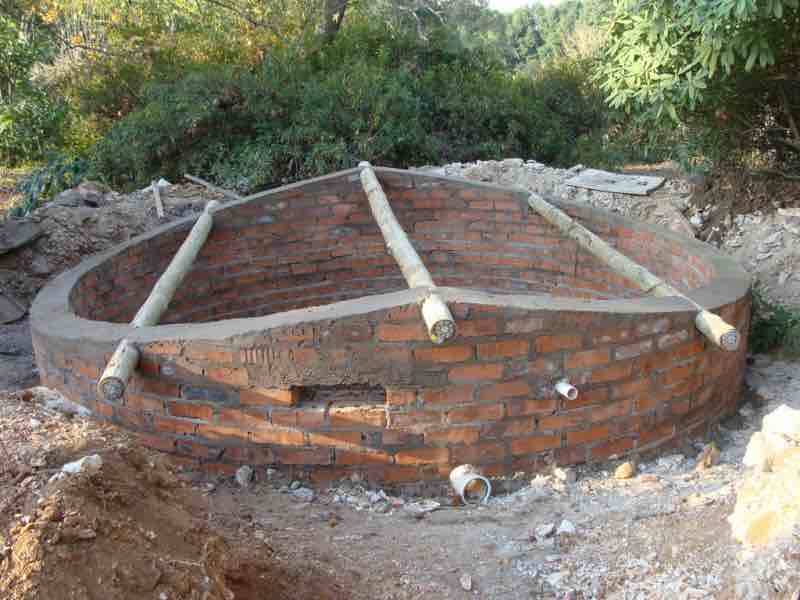 Two weeks to build, start to finish.
Two weeks to build, start to finish.It is all about each and every person taking a determined stand to do something to save the planet from those invasive humans; they are so destructive, burning their own home. In time the seas will rise, 30m if the scientists are to be believed, putting out those fires and drowning their cities; end of problem.
Yes I know the Cradle of Mankind is to be found in the Magaliesberg and all of us, black and white find our roots in South Africa. None of us are invaders, only we behave like we are.
Carpet South Africa with spekboom
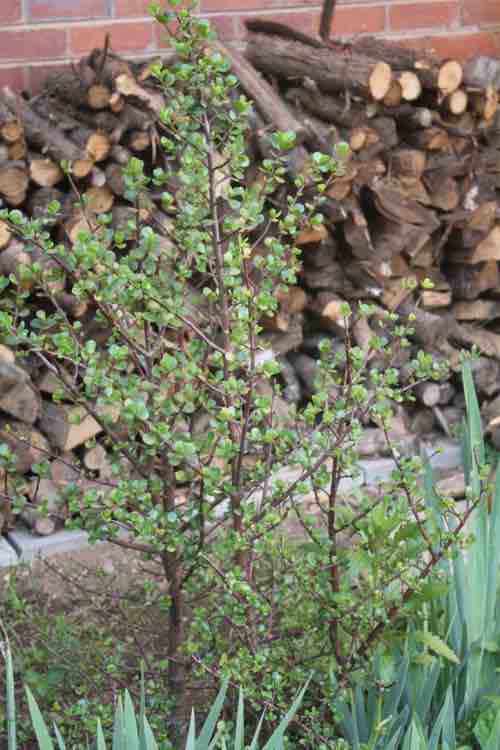
Carpet South Africa with the spekboom that absorbes huge amounts of carbon-dioxide from the atmosphere and provides copious buckets of nectar for honeybees.
Spekboom can sequester at least two tons of CO2 per year for each acre planted, making it more effective than those in the Amazon rain-forest. What is left of it; the trees are being hacked down for timber and to make way for soybeans. Increasingly we live in a world demanding vast areas of vegetable protein; much of it for animal feed.
As I update this page we are indeed into another fat-year for the beekeeper. We have had abundant rains and our spekboom is flourishing but not flowering yet.
As an aside we are currently locked down under the weight of the misery that is known as the coronavirus; is it not interesting that the bug has flourished in those parts of the world where air pollution is severe? South Africa too has not been spared with over a quarter of a million fatalities; raised blood-glucose here has also been fingered in research.
Fortunately German scientists[1] have found that raw-honey has surprisingly a low glycemic index; but once the commercial bottlers get hold of it the GI rises dramatically.
Carpeting South Africa with Spekboom for extra honey won't affect our wellness negatively provided we stick to the unprocessed nectar.
Our small part to carpet South Africa with Spekboom has been a great success; the tree is thriving and we're hoping for blossom before too long.
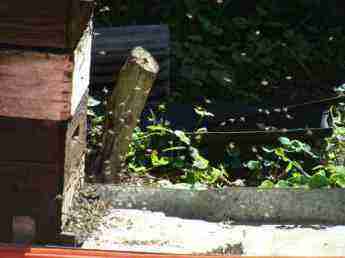
Bouquets of flowers
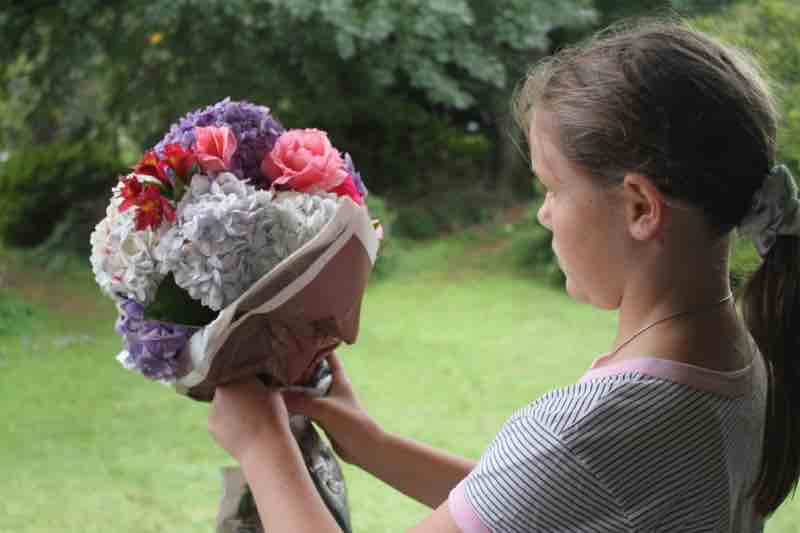
"There is increasing evidence that exposure to plants and green space and particularly to gardening, is beneficial to mental and physical health."
- Clinical Medicine (PMC6334070)[2]
Beautiful bouquets of flowers are often wrapped in plastic; could you use newsprint instead?
When browsing use right click and Open Link in New Tab, or you may get a bad gateway signal.
The material expressed on this page is gleaned from the nutritional and environmental literature; it is clearly referenced. A plain distinction is made between the author's opinion and that which is scientifically proven. When in doubt consult your health professional.
To suggest a correction or clarification, write to Dr Bernard Preston here. Contact.
Newsletter
Our newsletter is entitled "create a cyan zone" at your home, preserving both yourself and Mother Earth for future generations; and the family too, of course. We promise not to spam you with daily emails promoting various products. You may get an occasional nudge to buy one of my books.
Here are the back issues.
- Lifestyle and ideal body weight
- What are ultra-processed foods?
- Investing in long-term health
- Diseases from plastic exposure
- Intensive lifestyle management for obesity has limited value
- A world largely devoid of Parkinson's Disease
- The impact of friendly bacteria in the tum on the prevention of cancer
- There's a hole in the bucket
- Everyone is talking about weight loss drugs
- Pull the sweet tooth
- If you suffer from heartburn plant a susu
- Refined maize meal and stunting
- Should agriculture and industry get priority for water and electricity?
- Nature is calling
- Mill your own flour
- Bake your own sourdough bread
- Microplastics from our water
- Alternative types of water storage
- Wear your clothes out
- Comfort foods
- Create a bee-friendly environment
- Go to bed slightly hungry
- Keep bees
- Blue zone folk are religious
- Reduce plastic waste
- Family is important
- What can go in compost?
- Grow broad beans for longevity
- Harvest and store sunshine
- Blue zone exercise
- Harvest and store your rainwater
- Create a cyan zone at your home
Did you find this page interesting? How about forwarding it to a friendly book or food junkie? Better still, a social media tick would help.
- Homepage
- Our green garden
- Carpet South Africa With Spekboom
Address:
56 Groenekloof Rd,
Hilton, KZN
South Africa
Website:
https://www.bernard-preston.com